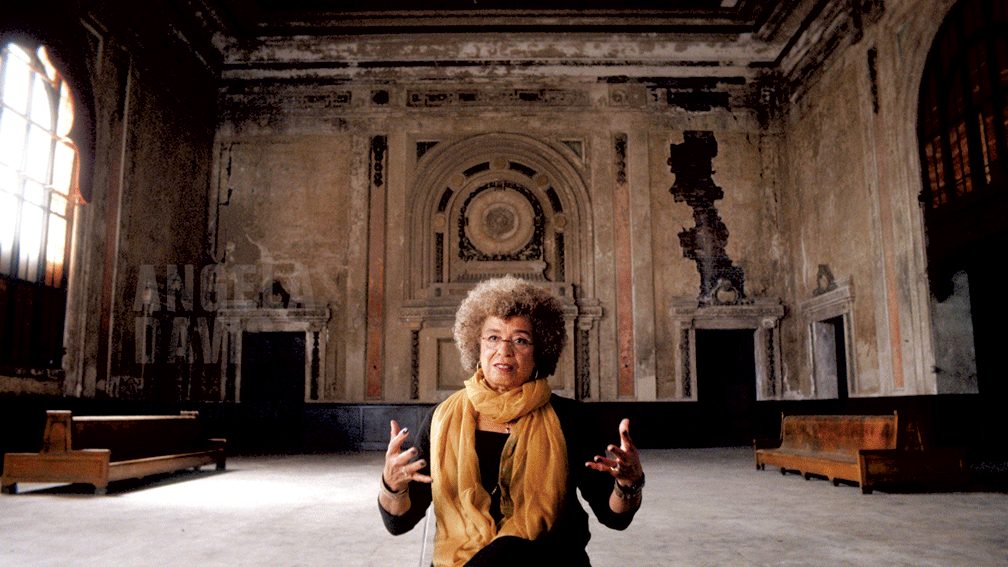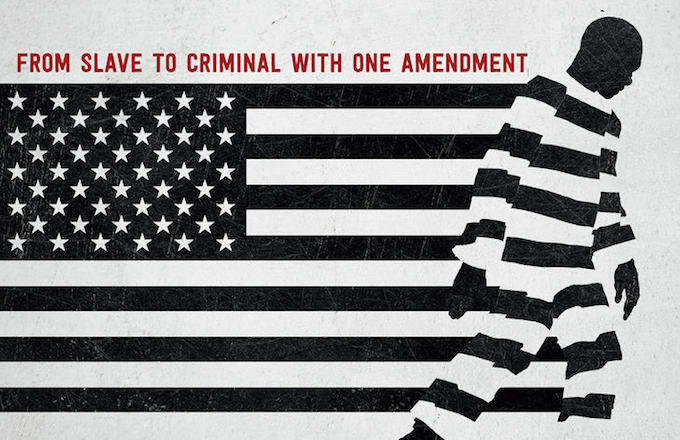
I’m constantly telling my 16-year-old son that a child only educated in school is an uneducated child. Ava DuVernay’s new Netflix documentary, 13th exemplifies that sentiment to the fullest extent of its meaning. Growing up in school we studied American history We all learned how Black people were brought here from Africa and forced into slavery and how the magical 13th amendment, signed by good ol’ honest Abe, freed us all. Isn’t it funny how what else it did has been kept as quiet as fine print usually is.
Per the Library of Congress,
The 13th amendment to the Constitution declared that “Neither slavery nor involuntary servitude, except as a punishment for crime whereof the party shall have been duly convicted, shall exist within the United States, or any place subject to their jurisdiction.” Formally abolishing slavery in the United States, the 13th Amendment was passed by the Congress on January 31, 1865, and ratified by the states on December 6, 1865.
Now I dare you to go back and reread it until it makes sense. If you don’t get the point I will explain it to you. The 13th amendment abolished slavery based on your race as it had previously been. Instead it now gave the American government the right to make anyone of any race a legal salve. As the amendment says, “Neither slavery nor involuntary servitude, except as a punishment for crime whereof the party shall have been duly convicted, shall exist within the United States, or any place subject to their jurisdiction.” In simple terms, only people convicted of crimes may be used as slaves or “forced labor.”
I was born in the early 80’s, I grew up in the crack era and people were getting locked up left and right even though we said no to drugs with Nancy Reagan. They called it an epidemic, a war on drugs. Shortly before that it had been a crime to be Black but the world was changing. After the Civil Rights era and all Americans gaining the right to vote, equal opportunity, employment and housing there was a consensus that there had to be a way to get Blacks back where they belonged, under rule. The government flooded the streets with crack cocaine and people took the bait.
Many who were locked up during the “War on Drugs” were given long sentences, some jailed for life over the sale of narcotics. It looked much better on the government’s part to lock people up for drugs than the previous decade where just being Black, protesting or participating a group to combat the Black plight, such as the Black Panthers got you arrested. Over the years we have all lost someone to the “war on drugs” and seen them get their voting privileges and basic human rights taken away as they are forced to slave in the prison system. When released from jail, many are on parole or probation and are forced to be accounted for always, like property; to check in and submit to drug testing, random pop ups at their homes and other forms of monitoring. At some point, you start to wonder what the hell is the point in all this. We pay for all of this with our tax money, the caging, tracking monitoring, and vilifying someone who has gotten in trouble, sometimes just once. The state and federal government wouldn’t spend all this money on the prison system if it wasn’t generating money for them, ideally more than that is being spent.

When you look at the modern-day prison system it is apparent how flawed it is. Prisons used to be a place where the goal was to rehabilitate as many of the prisoners as possible, making them productive members of the community when they return. That is not so much the case these days. Many inmates are detained at private prisons, not owned by the government but paid by the government. These prisoners often work long and grueling hours making books for the blind, lingerie, picnic tables, military jackets and battle gear, clothing from jeans and jackets to hats at slave wages. The average prisoner makes as little as $0.12 to $0.93 cent a hour. Some high paying federal prison jobs pay as much as $1.15 per hour for jobs that would pay on a scale from minimum wage to over $13.00 per hour for furniture makers.
According to the Federal Communications Commission the current prices for prisoner phone calls are
- Accor State or federal prisons: 13 cents/minute
- Jails with 1,000 or more inmates: 19 cents/minute
- Jails with 350-999 inmates: 21 cents/minute
- Jails of up to 349 inmates: 31 cents/minute
Can you imagine working for HOURS just to afford a 5-minute call home to your family?
So I’m watching this documentary, 13th on Netflix the other day and it breaks down over the years how the prison system was reformed over the years to criminalize behaviors of predominately Black and Latino communities in an effort to get more and more people off the streets and back to working for “massa”

13th features many prominent Black activists and educators as well as an interview with young Kalif Browder who was arrested n false charges innocently walking home one day. Browder was given a $10,000 bail which his family could not afford and sat in jail for 3 years awaiting trial. Kalif Browder was found innocent of all charges after 3 years of captivity, being assaulted and spending almost 2 years in solitary confinement. Shortly after the young man was released from jail he took his own life in his home. His mother passed away this week, just days after it was announced that rapper and businessman, Jay-Z would make a miniseries about Browder’s captivity.
The documentary thankfully explores the 1915 version of “The Birth of a Nation” and shows how the movie gave rise to the Klu Klux Klan again. We haven’t been able to get rid of them yet. In case you missed My previous article, a former KKK grand dragon, David Duke is running for senate openly Louisiana. A GOP headquarters in NC was just firebombed and tagged with the phrase “Nazis republicans leave or else”
The film takes a deep look at the current presidential election and takes a closer look at the rhetoric used, comparing it to previous regimes who used same tactics.
13th is not just educational but also has garnered much adulation from the film community. DuVernay’s 13th is the first documentary to debut at the New York Film Festival in over 50 years. Of the rare occasion NYFF’s director Kent Jones said, “We didn’t choose a documentary; we chose a film that happened to be a documentary.”
DuVernay has provided solid evidence that should open anyone’s eyes as to what the constitution says, how we are all at risk and why we need to start working on a new amendment. The United States is home to home to five percent of the world’s population, but 25 percent of the world’s prisoners. The question is will we as a nation care enough about ourselves and loved ones to stand up and fight for a change?












